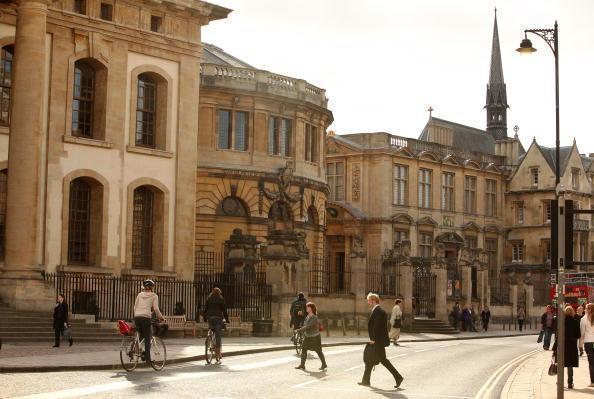Oxford University says it sees 'no need' for David Cameron's diversity drive
The university rejected the idea of more legislation to encourage a greater intake of ethnic minority students

Your support helps us to tell the story
From reproductive rights to climate change to Big Tech, The Independent is on the ground when the story is developing. Whether it's investigating the financials of Elon Musk's pro-Trump PAC or producing our latest documentary, 'The A Word', which shines a light on the American women fighting for reproductive rights, we know how important it is to parse out the facts from the messaging.
At such a critical moment in US history, we need reporters on the ground. Your donation allows us to keep sending journalists to speak to both sides of the story.
The Independent is trusted by Americans across the entire political spectrum. And unlike many other quality news outlets, we choose not to lock Americans out of our reporting and analysis with paywalls. We believe quality journalism should be available to everyone, paid for by those who can afford it.
Your support makes all the difference.Oxford has rejected plans drawn up by David Cameron to force top universities to disclose the proportion of ethnic minority applicants given places, saying it “does not see the need” for such legislation.
The Prime Minister specifically mentioned the university in a call for widespread reforms, writing in the Sunday Times that black people were “more likely to be in a prison cell than studying at a top university”.
Mr Cameron said it was “striking” that only 27 black students started at Oxford University in 2014, of an intake of more than 2,500 people.
But the university defended its record, saying 367 undergraduates from ethnic minority backgrounds received places in 2015, up 15 per cent in five years.
A spokesman for Oxford said the university welcomed “discussions” about the information it publishes, but rejected the need for a change to the rules.
And he said the university was doing well against “a challenging backdrop of changes to the educational landscape”.
“The effects of social inequality are already pronounced before children begin formal schooling, and universities, schools and government must work together to address their root causes effectively,” he said.
The director general of the elite Russell Group of universities, Wendy Piatt, also defended the “good progress” member institutions have made – and suggested poor teaching at school level was to blame.
She said: “There are still far too many children from disadvantaged backgrounds underachieving at school and receiving poor advice and guidance. It will take time, commitment, and sustained action from a range of agencies to raise pupils' aspirations, increase attainment and improve the advice and guidance offered.”
Sir Anthony Seldon, the vice-chancellor of the University of Buckingham and one of Mr Cameron’s biographers, welcomed the Prime Minister’s push.
He said: “It is deeply wrong that black and other ethnic minority students are so poorly represented in our universities, notably those like Oxford, which should be leading the way.”
Join our commenting forum
Join thought-provoking conversations, follow other Independent readers and see their replies
Comments